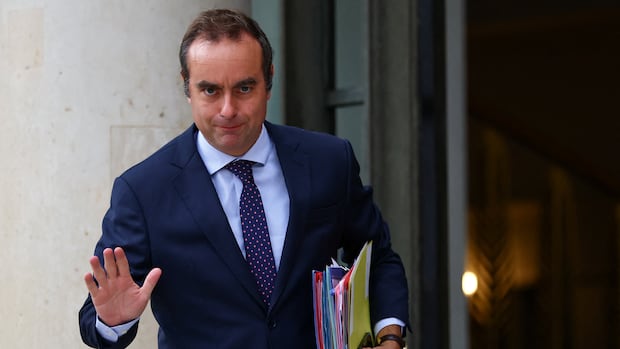French President Emmanuel Macron has appointed Sébastien Lecornu, a loyal supporter and former conservative ally, as the new prime minister, surprising many who expected a shift towards the left. This decision reflects Macron’s commitment to advancing his pro-business economic reforms, which have included tax cuts for businesses and the wealthy, as well as an increase in the retirement age.
Despite the government’s minority status, Macron has tasked Lecornu with engaging in discussions with all political factions in parliament to seek consensus on budget and policy matters before assembling the cabinet. This approach is uncommon in French politics but underscores Macron’s efforts to promote cooperation across the political spectrum.
In response to his appointment, Lecornu expressed gratitude for the president’s trust and outlined his priorities, emphasizing the defense of national interests, service to the French people, and political stability. This move marks Lecornu as Macron’s fifth prime minister in less than two years, following the recent removal of François Bayrou over fiscal concerns.
The nomination of a close ally like Lecornu has drawn criticism from opposition parties, with some viewing it as out of touch with public sentiments and indicative of a disconnect with the electorate. Leftist groups have called for nationwide protests against the decision, while socialist lawmakers have condemned the move as disrespectful to parliament.
Despite the backlash, the far-left France Unbowed party has announced plans to table a motion of no confidence against Lecornu, although cooperation signals from the far-right National Rally party suggest potential support for the new prime minister on budgetary issues. Lecornu’s success will hinge on navigating the diverse political landscape and addressing key concerns around taxation, spending, and immigration.
As Lecornu assumes his new role, his immediate focus will be on building consensus on the 2026 budget, a critical task that proved challenging for his predecessor. The political uncertainty in France underscores broader economic challenges facing the country, with escalating debt levels and growing instability impacting the eurozone’s second-largest economy.
Lecornu’s background includes serving as Macron’s defense minister, where he oversaw defense spending increases and contributed to shaping European security strategies. His political journey from a young supporter of Nicolas Sarkozy to a key figure in Macron’s administration highlights his experience and evolution within French politics.
By appointing a prime minister from his political camp with conservative roots, Macron signals a commitment to safeguarding his economic agenda, which includes measures such as abolishing the wealth tax and raising the retirement age to attract investment. This strategic move underscores Macron’s determination to uphold his policy legacy amidst evolving political dynamics.



